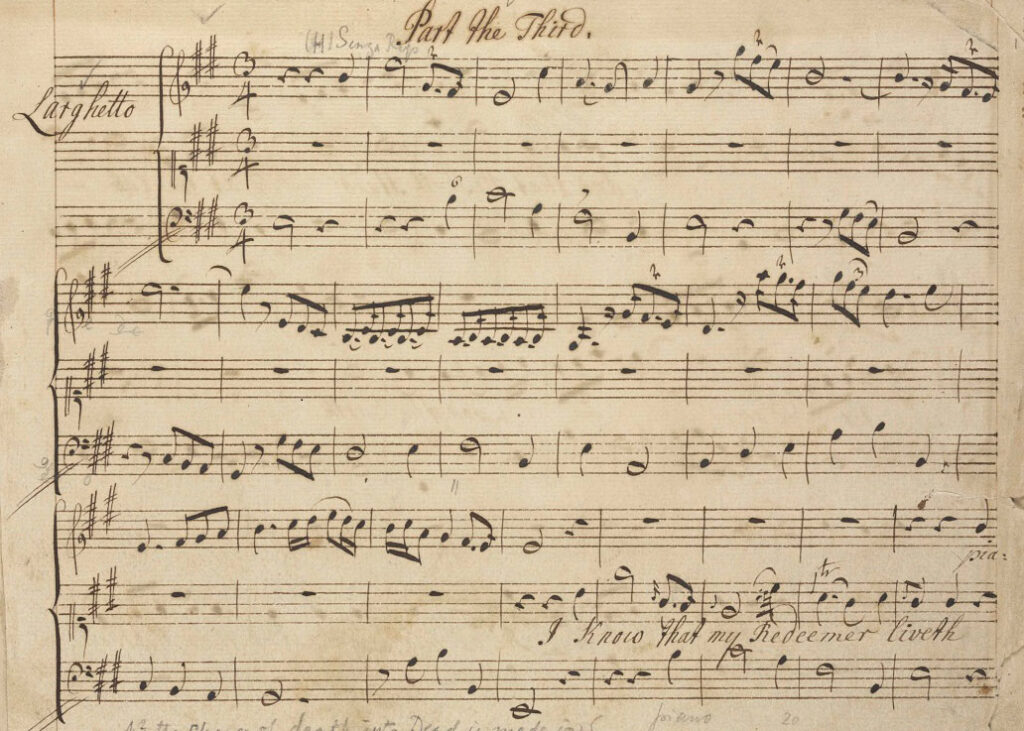The lyrics for Handel’s Messiah, the “libretto,” come directly from the Scriptures. They were assembled by Charles Jennens (1700 – 1773), an English aristocrat who collaborated with Handel on several musical projects. His primary source was the Authorized or Standard (Pure Cambridge) King James Version of the Bible and for all but one of the Psalms, the 1662 Book of Common Prayer of the Anglican Church. We will use these versions of Scripture for this devotional.1
 You may notice when comparing the biblical passages and the libretto that while Jennens and Handel were faithful to the text, at times they left out particular words to fit the music or theme of a particular song. As people have experienced for centuries, these slight omissions do not compromise the truth of the Scriptures.
You may notice when comparing the biblical passages and the libretto that while Jennens and Handel were faithful to the text, at times they left out particular words to fit the music or theme of a particular song. As people have experienced for centuries, these slight omissions do not compromise the truth of the Scriptures.
The libretto includes 81 Bible verses from 14 different books of the Bible, with the most coming from the book of Isaiah (21 verses).
In 1743, a workbook was published for a performance of the Messiah that divided the oratorio into three Acts and 16 scenes. We’ve included these divisions into this devotional which highlights the story of the nativity and the prophecies foretelling Christ’s birth; the crucifixion and redemption of mankind; and a commentary on the Christian soul and its victory over death through the work of Jesus Christ.
In this Advent Devotional, we won’t be able to cover Handel’s Messiah in its totality due to space and time limitations. Thus, we have included most of the songs that focus on the Nativity of Christ and have then selected other songs that summarize the story of Jesus’ life, death, resurrection, and ascension as the King of Kings and Lord of Lords.
Read more about the history and composition of Messiah.
1The Standard King James Version of the Bible and the 1662 Book of Common Prayer can be found in the Public Domain.